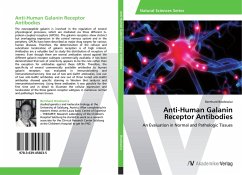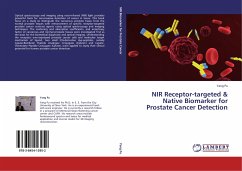The neuropeptide galanin is involved in the regulation of several physiological processes, which are mediated via three different G-protein-coupled receptors (GPCRs). The galanin receptors show distinct but overlapping expression in the central nervous system and in the periphery. GPCRs have been described as major drug targets for various human diseases. Therefore, the determination of the cellular and subcellular localization of galanin receptors is of high interest. Antibodies are a valuable tool to study the distribution of receptors of interest. Even though there are several antibodies raised against the different galanin receptor subtypes commercially available, it has been demonstrated that lack of selectivity appears to be the rule rather than the exception for antibodies against these GPCRs. Therefore, the specificity of several commercially available antibodies to human galanin receptors was evaluated in immunoblotting and immunohistochemistry. One out of two anti-GalR1antibodies, one out of two anti-GalR2 antibodies and one out of three tested anti-GalR3 antibodies showed specific staining in Western blot analysis and immunohistochemistry. Using these antibodies it was possible for the first time and in detail to illustrate the cellular expression and localization of the three galanin receptor subtypes in numerous normal and pathologic human tissues.
Bitte wählen Sie Ihr Anliegen aus.
Rechnungen
Retourenschein anfordern
Bestellstatus
Storno








